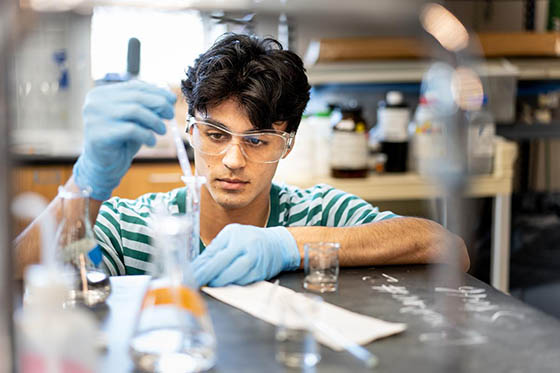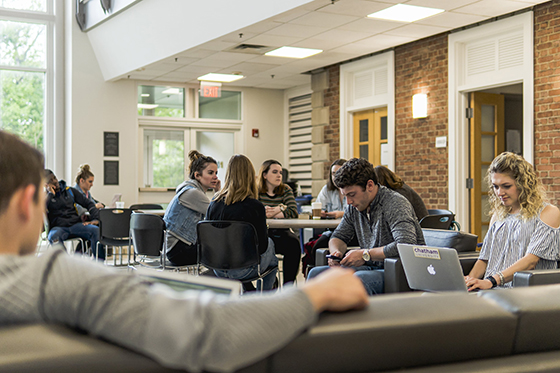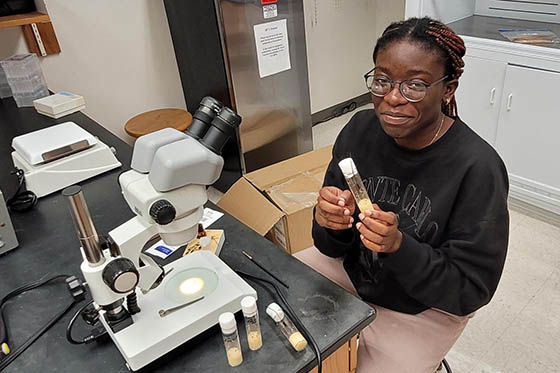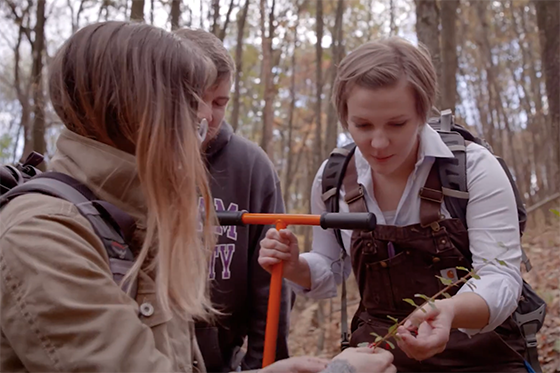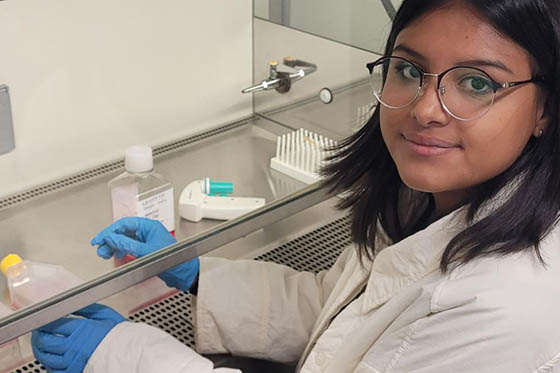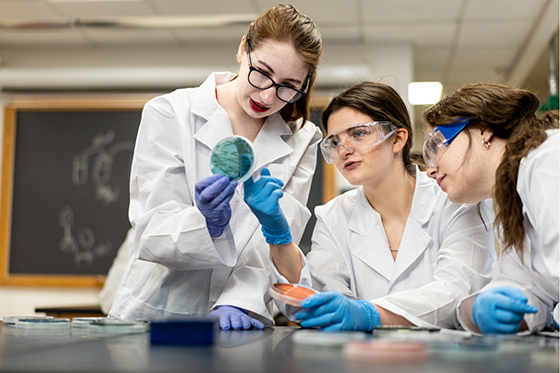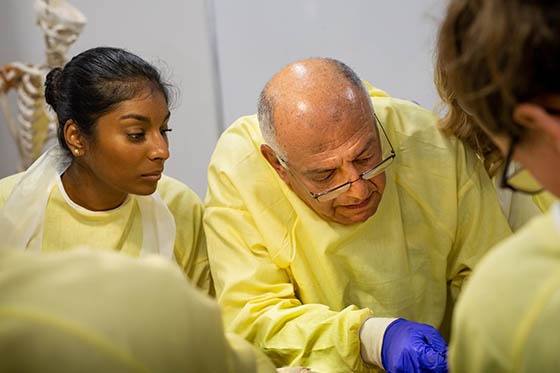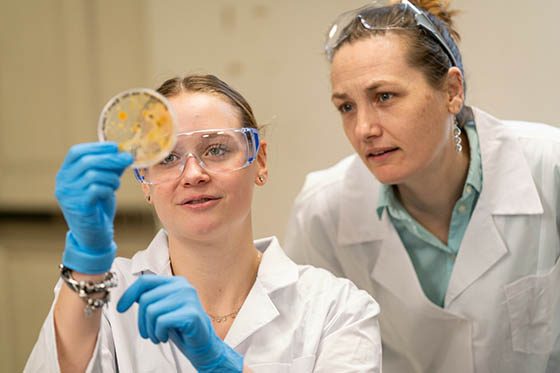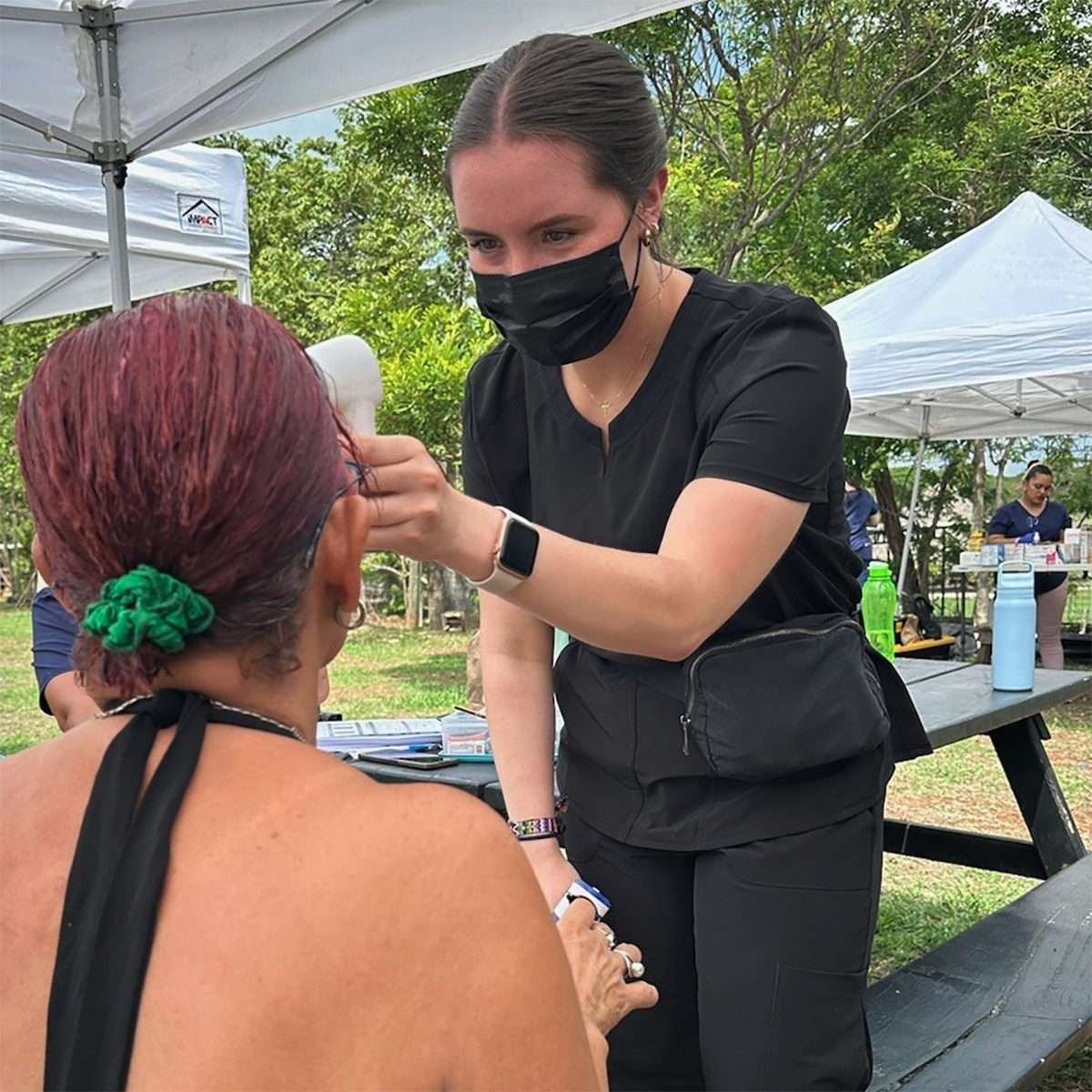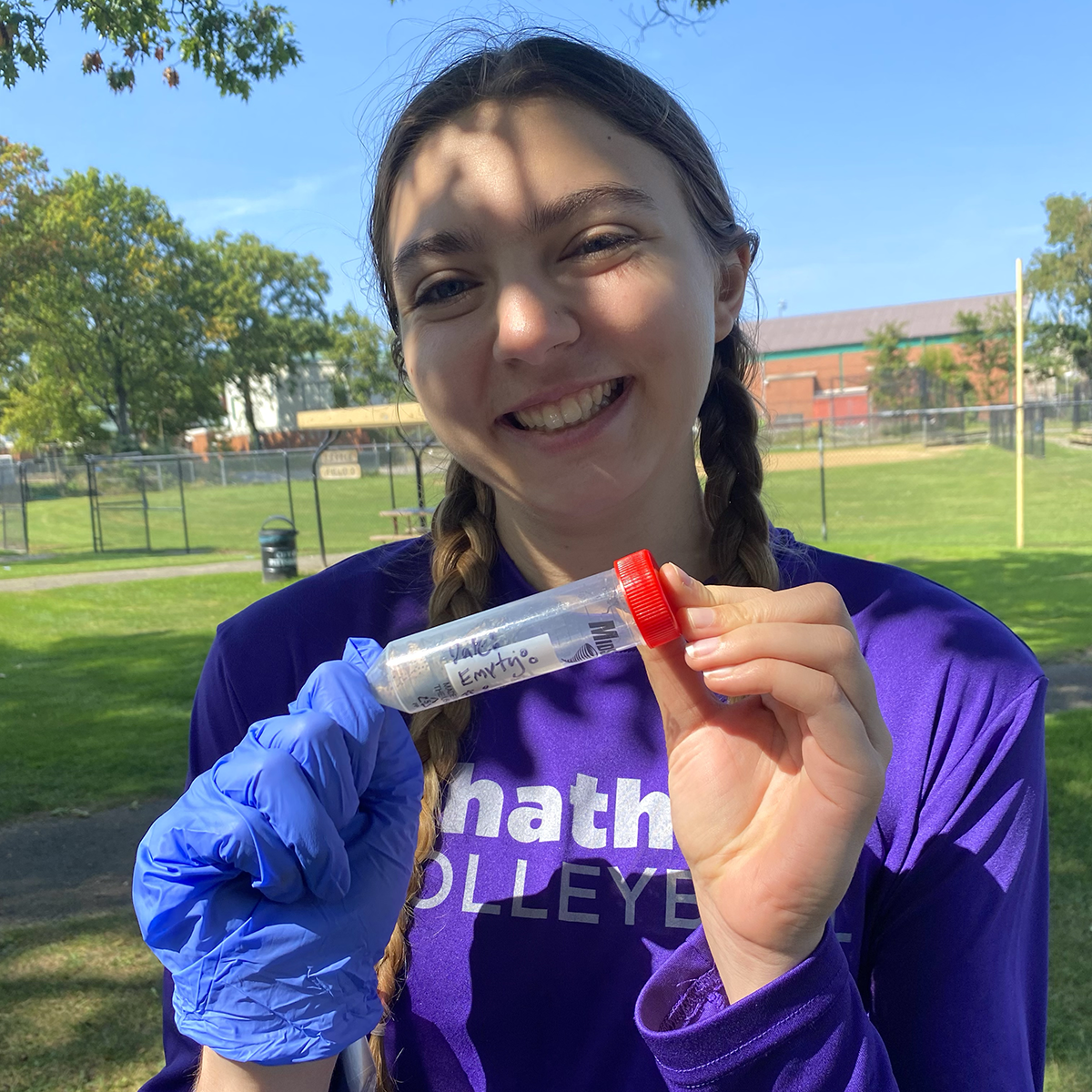At Chatham University, the study of biology spans the spectrum from unlocking the secrets of the gene at the molecular level to providing the knowledge to help understand the causes and spread of diseases.
Chatham offers tracks tailored to different fields of interest. The
cell and molecular biology concentration is appropriate for a career in research or medicine. The
human biology concentration includes all of the prerequisite courses for our Master of Physician Assistant Studies program, and is well suited to careers in a variety of health professions. Students interested in the role of biology and ecosystems are encouraged to consider a major in
environmental science at Chatham.
